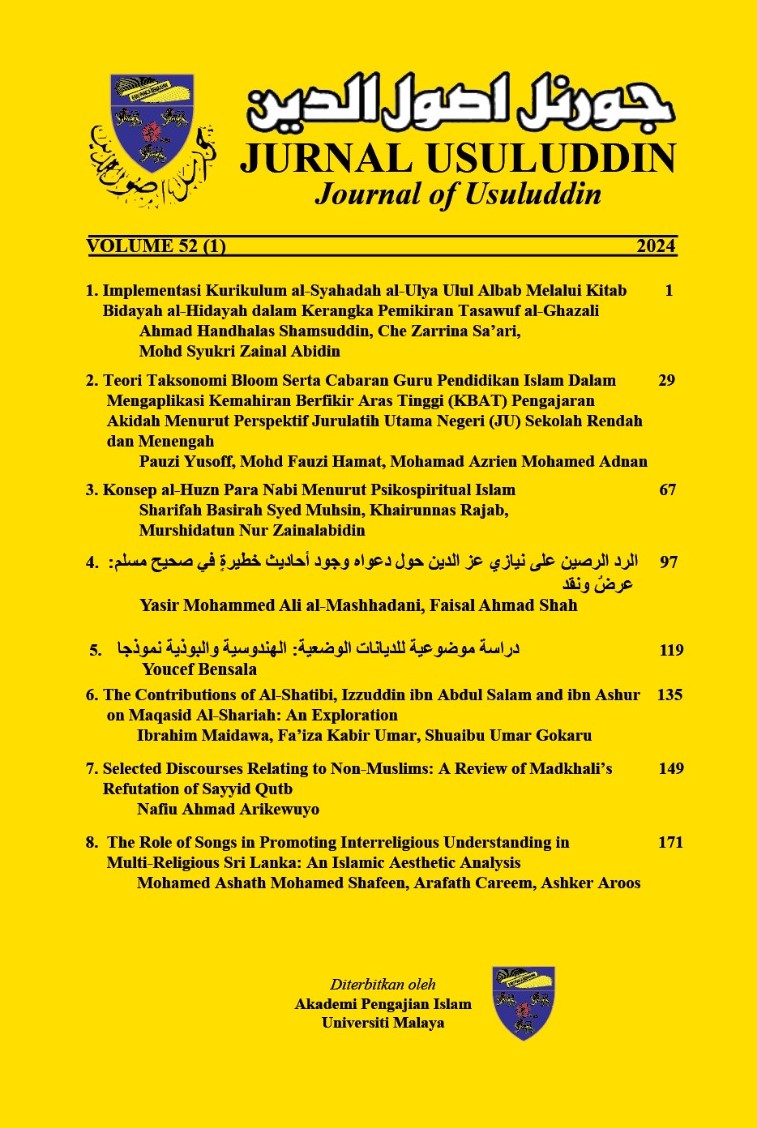دراسة موضوعية للديانات الوضعية: الهندوسية والبوذية نموذجا
An Objective Study of Secular Religions: Hinduism and Buddhism as a Model
DOI:
https://doi.org/10.22452/usuluddin.vol52no1.5Abstract
Knowledge of the legislative sources of any religion is considered the primary outlet for knowing its truth, origins, and branches, and the only way to judge it by virtue and validity. A judgment of the thing is part of its conception and can only be imagined by looking at its source. Some religions agree about their messengers and resources and facilitate access to their isources while others do not, such as Hinduism and Buddhism. There is more than one opinion about their founder, the name of their religion, and their legislative sources, this study explores the legislative sources of Hinduism and Buddhism. The research adopts a library-based method comprising historical and analytical approaches. The results show that Hinduism is more accurately referred to as Alʼaryh, as the ancient figures like Buddha did not give it any other name. Also, for the term "Hindu" is used to describe anyone who follows it, and it is not related to the inhabitants of India or those who own cows, as there are many Hindus outside the country and countless numbers who do not raise cows. Regarding the personality of Buddha, the most correct opinion is that he was a philosophical man with no connection to prophecy. His actions and words support this view. The study concludes that both religions have original and secondary sources.











